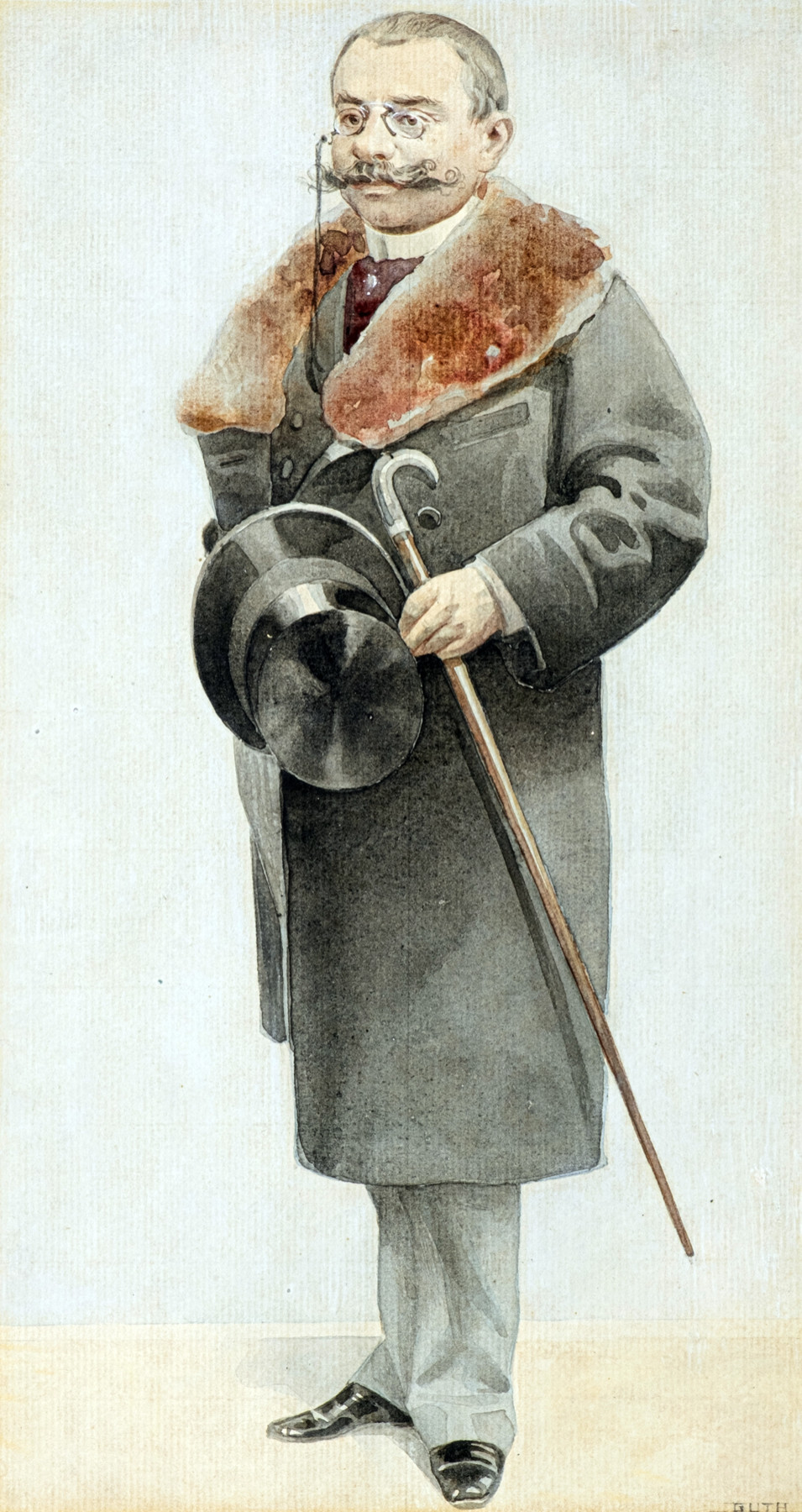
(click image to enlarge)
Théophile Delcassé (1852-1923) was a French statesman, whose caricatured appeared in Vanity Fair shortly after he had been named as the French Foreign Minister. Strongly anti-German, he improved relations between France and Italy and France and Russia, before concluding the Entente Cordiale with Great Britain in April 1904.
“The journalist in France gets on oftener than he does out of France: because, on doubt, he is a cleverer fellow. So when Théophile had been named – (which happened at Pamiers seven-and-forty years ago) – he naturally began his career as a scribbler for newspapers. Now he is something like the biggest man in France. The years are only ten since he was first elected to the Chamber; four years later he became Under-Secretary for the French Colonies (such as they are); and after the fall of the Méline Cabinet last year M. Brisson improved him into Minister for Foreign Affairs, and so brought him into very direct conflict with our own Lord Salisbury. He did not achieve Fashoda, but he dealt with that little matter so diplomatically that he retains his Portfolio in M. Dupuy’s Ministry – though the Brisson Administration has been defeated. For he is a very clever fellow, even among Frenchmen; who can look very firm even after he has decided to yield to the inevitable.
He is not a big man physically, but behind his glasses his eyes gleam with lively interrogation. He has the gift of speaking, and he is a robust fighter in debates, and the most implacable man in the Méline Cabinet. His wit is quick, and supple; he is practically the inventor of the French Colonial Department; he is a very consistently vigorous champion of French Colonial development, and in spite of all this he is very French. With all his pugnacity, or because of it, he likes music.
So he is a habitué of the Opera.”